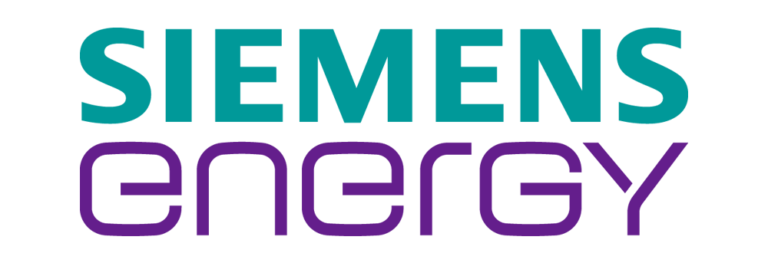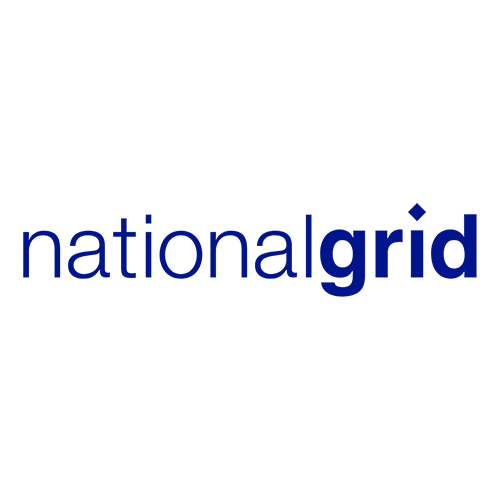EU CBAM – The Ultimate Guide for Importers and Exporters:

What is CBAM?
The Carbon Border Adjustment Mechanism (CBAM), introduced by the European Union (EU), is a policy designed to prevent carbon leakage and promote environmentally sustainable practices worldwide. It applies carbon pricing to imported goods, ensuring they bear equivalent climate-related costs as products manufactured within the EU.
At ChamberCustoms, we provide customised consultancy services to support businesses in understanding and meeting CBAM compliance requirements. Our experts assist with emissions calculations, reporting obligations, and staying up to date with evolving regulations. We offer flexible consultancy options, including both on-site and remote support, tailored to your specific needs.
Take the EU CBAM Health Check here.
How does CBAM Work?
CBAM targets industries known for high carbon emissions, specifically covering the following sectors:

What is the Purpose of CBAM?
Preventing Carbon Leakage
CBAM aims to prevent businesses from moving production to countries with lower environmental standards to avoid carbon costs or replacing EU-produced goods with higher-carbon imports. By ensuring imported products carry equivalent carbon costs, CBAM supports global carbon reduction efforts.
Encouraging Sustainability
By imposing a carbon price on imports, CBAM incentivises non-EU countries to adopt cleaner production methods to remain competitive in the EU market.
Calculation:
1. EU importers are required to declare the carbon emissions embedded in the goods they import into the EU. To account for these emissions, they must purchase CBAM certificates reflecting the carbon cost that would apply if the products were made under the EU Emissions Trading System (EU ETS). If the carbon price in the exporting country is lower than the EU’s, the importer must offset the difference by acquiring additional certificates.
2. UK exporters are required to give accurate carbon emissions information to their EU customers. This helps the EU importer calculate how many CBAM certificates to buy based on that data.
Compliance:
Importers must share verified details about the carbon emissions in their imported goods and any carbon price already paid in the country where the goods were made.
If that price is lower than the EU’s, the importer must buy CBAM certificates to cover the difference based on the EU carbon price.
• What are the Benefits & Challenges of CBAM?
Benefits:
• Environmental: CBAM contributes to global greenhouse gas reduction efforts, playing a role in the fight against climate change.
• Economic: It promotes fair competition by ensuring that both EU and non-EU producers face comparable carbon costs.
• Innovation: CBAM drives progress by encouraging the development and adoption of low-carbon technologies worldwide.
Challenges:
• Complexity: Determining and verifying the carbon content of products can be difficult, particularly for companies with intricate supply chains.
• Trade Relations: CBAM may lead to trade conflicts, as some non-EU countries could see it as a form of protectionism. Businesses exporting to the EU will need to ensure they meet the regulatory requirements.
How to Calculate CBAM Emissions:
• As an exporter to the EU, you may need to calculate the carbon emissions embedded in your products, considering both direct and indirect emissions. Direct emissions result from production processes, while indirect emissions stem from the energy and electricity used. Additionally, any carbon price already paid along the supply chain must be accounted for.
• ChamberCustoms provides expert support to help you accurately calculate your carbon emissions and ensure compliance with EU CBAM requirements.
Impacts on EU Importers & UK Exporters:
EU Importers:
Importers must consider the carbon content of their goods, which could lead to higher costs and additional administrative work. To comply with CBAM, verified carbon data will be required, and failure to comply may lead to penalties.
UK Exporters:
UK exporters are responsible for supplying the necessary information to their EU importers. This includes the following commercial responsibilities:
• Engage with Suppliers: Exporters and importers must collect accurate emissions data from their suppliers, ensuring that emissions across all production stages are recorded. UK exporters ensure their EU partners have the required data for CBAM compliance.
• Product Information and Commodity Codes: UK exporters must provide detailed product information, including Combined Nomenclature (CN) codes.
• Production Processes: Exporters need to outline the production methods used for their goods, including the steps involved.
• Emissions Data: UK exporters must provide precise emissions data in tonnes of CO2 equivalent, covering both direct emissions from production and indirect emissions from energy use.
By supplying this information, UK exporters help their EU importers meet CBAM requirements. Failing to provide accurate data could harm relationships with EU buyers and limit access to the market.
What is the CBAM Supply Chain?
The CBAM (Carbon Border Adjustment Mechanism) supply chain is focusses on monitoring carbon emissions generated at each phase of a product’s processing lifecycle. This includes emissions from raw material extraction and processing, manufacturing, and other stages directly contributing to the final product’s creation.
To meet CBAM requirements, both direct and indirect emissions must be identified and reported:
Direct Emissions: These are emissions that originate directly from the production process—for example, those released by fuel combustion in machinery or chemical reactions during manufacturing.
Indirect Emissions: These refer to emissions associated with the energy consumed during production, such as electricity and heat, which may be produced off-site but still impact the product’s overall carbon footprint.
Importers and exporters must collect detailed emissions data from all relevant stages, ensuring accurate accounting of both direct emissions from on-site activities and indirect emissions from purchased energy sources.
Integrating Sustainability into Supply Chains Under CBAM
While sustainable practices are not mandatory under current CBAM regulations, adopting them can enhance the competitiveness of UK exporters by lowering carbon footprints and reducing emissions-related costs. With UK CBAM legislation expected to align in the near future, early preparation can offer a strategic advantage.
Key strategies include:
Reducing Carbon Footprint: Companies should prioritise energy-efficient production methods, partner with low-emission suppliers, and invest in renewable energy sources to minimize overall carbon emissions.
Ensuring Transparent Reporting: Establish and maintain clear, accurate records of emissions across all stages of the supply chain to support compliance and build stakeholder trust.
By embedding sustainable practices into supply chain operations, businesses can not only align more effectively with CBAM requirements but also strengthen their market position and support global decarbonisation goals.
Implementation timeline:
The EU CBAM is being gradually implemented. This phased approach allows businesses time to adapt to the new compliance requirements while gradually increasing the accuracy of emissions reporting.
Timeline
2023 – Initial Phase
Reporting Obligations Began
Importers must start collecting and reporting emissions data for imported goods.
Note: Default values can be used during this phase.
August 2024 – Data Accuracy Requirement
Shift to Actual Emissions Data
Importers must use actual emissions data wherever possible.
Requirement: At least 80% of emissions data must come from measured production emissions, not default values.
2026 – Full Implementation
CBAM Certificate System Introduced
Importers will be required to purchase CBAM certificates corresponding to the embedded emissions in their goods.
Support Available:
CBAM compliance is a continuous process that demands regular monitoring and updates to stay aligned with changing regulations. At ChamberCustoms, we offer expert guidance to help businesses maintain compliance while reducing administrative burdens.
The BCC’s CBAM consultancy service provides exporters with the knowledge and resources to meet changing compliance demands. Our experienced consultants support businesses in understanding, measuring, and reporting their carbon emissions in accordance with the latest CBAM regulations.
ChamberCustoms’ Consultancy Package Includes:
• On-site or Remote Support: A ChamberCustoms expert will either visit your site or collaborate remotely with your team to evaluate your production processes, assess the carbon impact at each stage, and ensure emissions are accurately allocated to the correct products.
• Tailored Monitoring and Reporting: We work with you to develop a CBAM monitoring and reporting system, ensuring you provide accurate, precise emissions data to your EU customers.
• Boundaries and Precursors: We will identify which goods are in scope for CBAM and help you define the boundaries and precursors of your production process to ensure all emissions are properly accounted for.
• Data Collection and Emission Apportioning: We support you in collecting both direct and indirect emissions data, ensuring emissions are apportioned to the appropriate reporting periods.
• Software Solutions: We use specialist software to manage and calculate your emissions data. After the first year, you have the flexibility to either continue working with us to manage your reporting, or we can provide access to the software so that you can manage the data in-house.
Why UK Businesses Need to Act Now
While EU importers are legally responsible for CBAM compliance, UK businesses play a crucial role by supplying accurate emissions data—essential to maintaining smooth trade and strong customer relationships.
Since July 2024, EU importers are required to report actual emissions data wherever available, rather than relying on default values. To support this shift, UK exporters must be ready to:
• Deliver comprehensive carbon emissions reports for their exported products
• Account for both direct and indirect emissions in their calculations
• Avoid costly delays, penalties, or lost contracts due to incomplete or inaccurate data
A lack of preparation could drive up compliance costs for EU importers, making UK products less competitive in the European market.
Benefits of ChamberCustoms’ Support:
• Provide your EU customers with the necessary information to comply with CBAM, reducing the complexity when importing UK products.
• Identify opportunities to reduce emissions, enhancing the competitiveness of your products by lowering carbon costs in the EU market.
• Working with ChamberCustoms to stay compliant with the EU CBAM positions you well for any future UK CBAM regulations, ensuring a smoother and more efficient transition.
EU CBAM Health Check:
Is your business EU CBAM Compliant?
Measure your readiness through the Free ChamberCustoms EU CBAM Health Check Tool.
The tool will help businesses understand whether they are prepared for the regulations around carbon emissions reporting and whether they’re aligned with the EU’s goals for reducing carbon footprints.
Take the EU CBAM Health Check here.
Use referral LCC
With expertise in customs and borders, international trade and compliance, our team provides UK businesses with tailored guidance on CBAM regulations, emissions reporting, and strategic preparation. Whether you need a one-off consultancy or ongoing monitoring, ChamberCustoms is here to help you stay ahead in the global market.
Contact us below for more information or to discuss how this service can help your business













